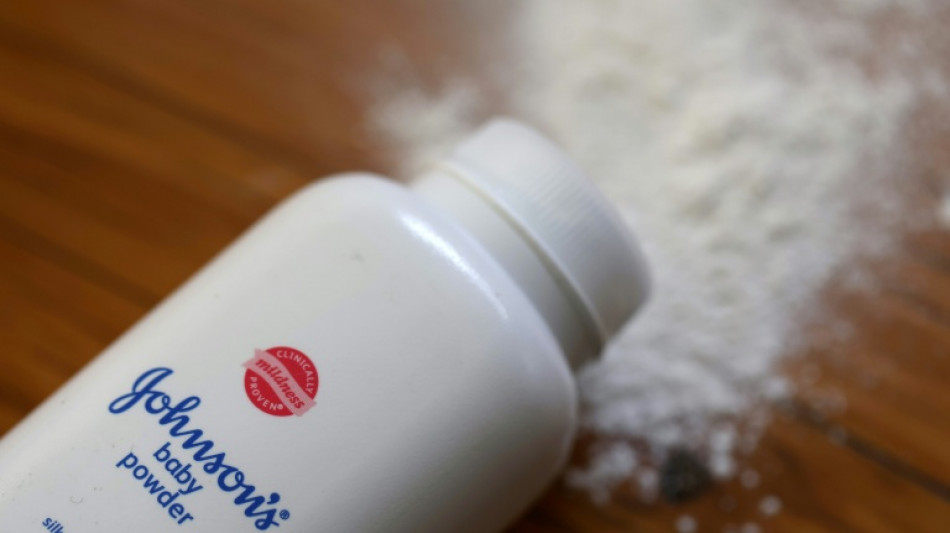
Johnson & Johnson faces UK lawsuit over talc cancer claim

Thousands of UK claimants have filed legal action against US pharmaceutical and cosmetics giant Johnson & Johnson alleging people diagnosed with cancers were exposed to asbestos in its talcum powder, lawyers said Thursday.
The company has faced a series of similar lawsuits in North America, with the latest UK claim filed in the High Court in London.
The law firm representing around 3,000 complainants in Britain said the compensation claim "is estimated to be more than £1 billion" ($1.3 billion).
They allege that either they or a family member developed forms of ovarian cancer or mesothelioma from using J&J's Baby Powder.
"The claim, which covers the period from 1965 to 2023, details how Johnson & Johnson knew that their talc products contained carcinogenic fibres, including asbestos, for more than 50 years," KP Law said.
The company "chose to keep it on the market in the pursuit of profit," it added, claiming J&J only withdrew their mineral talc from Britain in 2023, three years after it was taken off North American shelves.
A Johnson & Johnson spokesperson referred enquiries to its former consumer health arm Kenvue, which it separated from in August 2023.
"As a part of that separation, Kenvue retained the responsibility and any purported liability for talc related litigation outside of the United States and Canada," the spokesperson said.
A Kenvue spokesperson said the safety of J&J's Baby Powder "is backed by years of testing by independent and leading laboratories, universities, and health authorities in the UK and around the world".
The spokesperson added "the high-quality cosmetic grade talc" used in the powder "was compliant with any required regulatory standards, did not contain asbestos, and does not cause cancer".
US courts in April rejected a J&J offer to pay approximately $8 billion over 25 years to settle around 90,000 civil complaints there related to ovarian issues, without admitting liability.
The World Health Organization's cancer agency classified talc as "probably carcinogenic" for humans in July last year.
A summary of studies published in 2020 covering 250,000 women in the United States did not find a statistical link between the use of talc on the genitals and the risk of ovarian cancer.
C.Blake--TNT